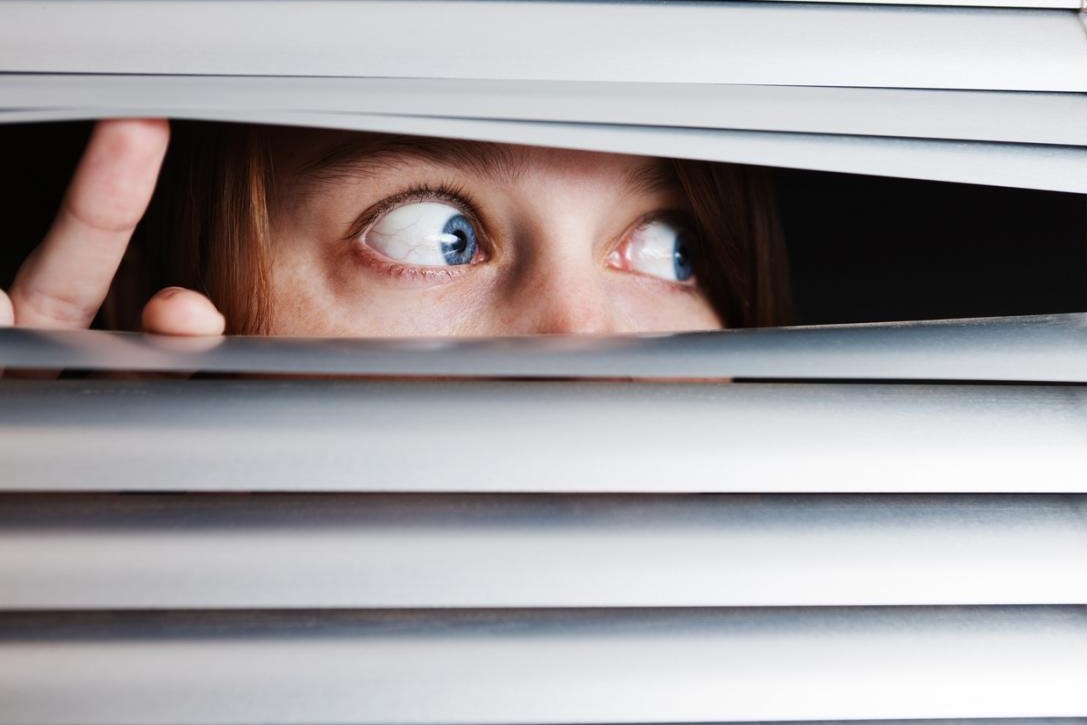
Agoraphobia: what is it and what are the symptoms
Agoraphobia is a form of anxiety related to the feeling of being in places or situations from which it would be difficult to leave
Panic attack disorder, and that is the recurrence of multiple attacks related to anticipatory worry that more attacks will occur, can occur with or without agoraphobia.
Panic attacks as per DSM-IV-R are part of anxiety disorders and are defined as follows: a definite period of intense fear or discomfort during which 4 or more of the following symptoms developed suddenly and peaked within 10 minutes:
- palpitations, heart palpitation or tachycardia
- sweating
- fine or large tremors
- dyspnea or choking sensation
- sensation of asphyxiation
- chest pain or discomfort
- nausea or abdominal discomfort
- feelings of lurching, unsteadiness, lightheadedness or fainting
- derealization (feeling of unreality) or depersonalization (being detached from oneself)
- fear of losing control or going crazy
- fear of dying
- paresthesias (feelings of numbness or tingling)
- chills or hot flashes.
Agoraphobia, the disorder can over time, if left untreated, become disabling
The person caught up in anticipatory anxiety and the desire to avoid the onset of further attacks, avoids situations.
Going so far in the most severe cases as to stop taking the car, means of transportation, to stop leaving the house.
Therefore, agoraphobia should not be underestimated.
In fact, if one does not undergo treatment, it can become chronic and follow an up-and-down pattern, that is, exacerbate periodically.
Of the rest, it is good to know that excellent results and even complete recovery can be achieved if given proper treatment.
Signs and symptoms of agoraphobia
The symptoms of panic attacks, of which agoraphobia can be a manifestation, are similar to and therefore can be mistaken for other conditions, such as angina pectoris.
Indeed, emergency rooms often receive requests for help in which the two conditions are interchanged.
After all, this symptom is also associated with the hectic life we lead.
However, it is necessary to undergo all medical checks to rule out medical incidence factors and be able to make a differential diagnosis of panic attacks.
So first it will be necessary to go to the general practitioner who will have to subject the person to all relevant tests. For example thyroid tests, electrocardiogram, etc.
Treatment of agoraphobia
In cases of agoraphobia, pharmacological or psychopharmacological therapy is very often used, which may be helpful or essential in calming the symptoms.
Anxiety, however, is generally a way that our body/brain has of talking to us.
It is a message that needs to be decoded and if not decoded continues to act.
When we do not express feelings, reframe memories, or define situations, all this unheard nor channeled energy can develop anxiety.
To treat it therefore it is necessary, on the one hand to treat its symptoms, with medication or behavioral therapy, and on the other hand to understand its hidden messages, to bring out an “unspoken.”
Read Also
Emergency Live Even More…Live: Download The New Free App Of Your Newspaper For IOS And Android
Agoraphobia: What Is It And What Are The Symptoms?
Trichotillomania, Or The Compulsive Habit Of Pulling Out Hair And Hairs
Impulse Control Disorders: Kleptomania
Impulse Control Disorders: Ludopathy, Or Gambling Disorder
Intermittent Explosive Disorder (IED): What It Is And How To Treat It
Knowing And Treating 9 Common Types Of Phobia
What To Know About Ophidiophobia (Fear Of Snakes)
Trichotillomania: Symptoms And Treatment
Trichotillomania, Or The Compulsive Habit Of Pulling Out Hair And Hairs
Body Dysmorphophobia: Symptoms And Treatment Of Body Dysmorphism Disorder
Psychosomalisation Of Beliefs: The Rootwork Syndrome
Paediatrics / ARFID: Food Selectivity Or Avoidance In Children
Obsessive Compulsive Disorder (OCD): An Overview
Tics And Swearing? It’s A Disease And It’s Called Coprolalia
Craving: Desire And Imagination
Paranoid Personality Disorder: General Framework
Obsessive-Compulsive Personality Disorder: Psychotherapy, Medication
What Is Lima Syndrome? What Distinguishes It From The Well-Known Stockholm Syndrome?
Recognising The Signs Of Compulsive Shopping: Let’s Talk About Oniomania
What Is OCD (Obsessive Compulsive Disorder)?
Antipsychotic Drugs: An Overview, Indications For Use
Metropolitan Police Launches A Video Campaign To Raise Awareness Of Domestic Abuse
Metropolitan Police Launches A Video Campaign To Raise Awareness Of Domestic Abuse
World Women’s Day Must Face Some Disturbing Reality. First Of All, Sexual Abuse In Pacific Regions
Child Abuse And Maltreatment: How To Diagnose, How To Intervene
Child Abuse: What It Is, How To Recognise It And How To Intervene. Overview Of Child Maltreatment
Does Your Child Suffer From Autism? The First Signs To Understand Him And How To Deal With Him
Emotional Abuse, Gaslighting: What It Is And How To Stop It
Obsessive-Compulsive Personality Disorder: Causes, Symptoms, Diagnosis, Therapy, Medication
Dysposophobia Or Compulsive Hoarding Disorder


